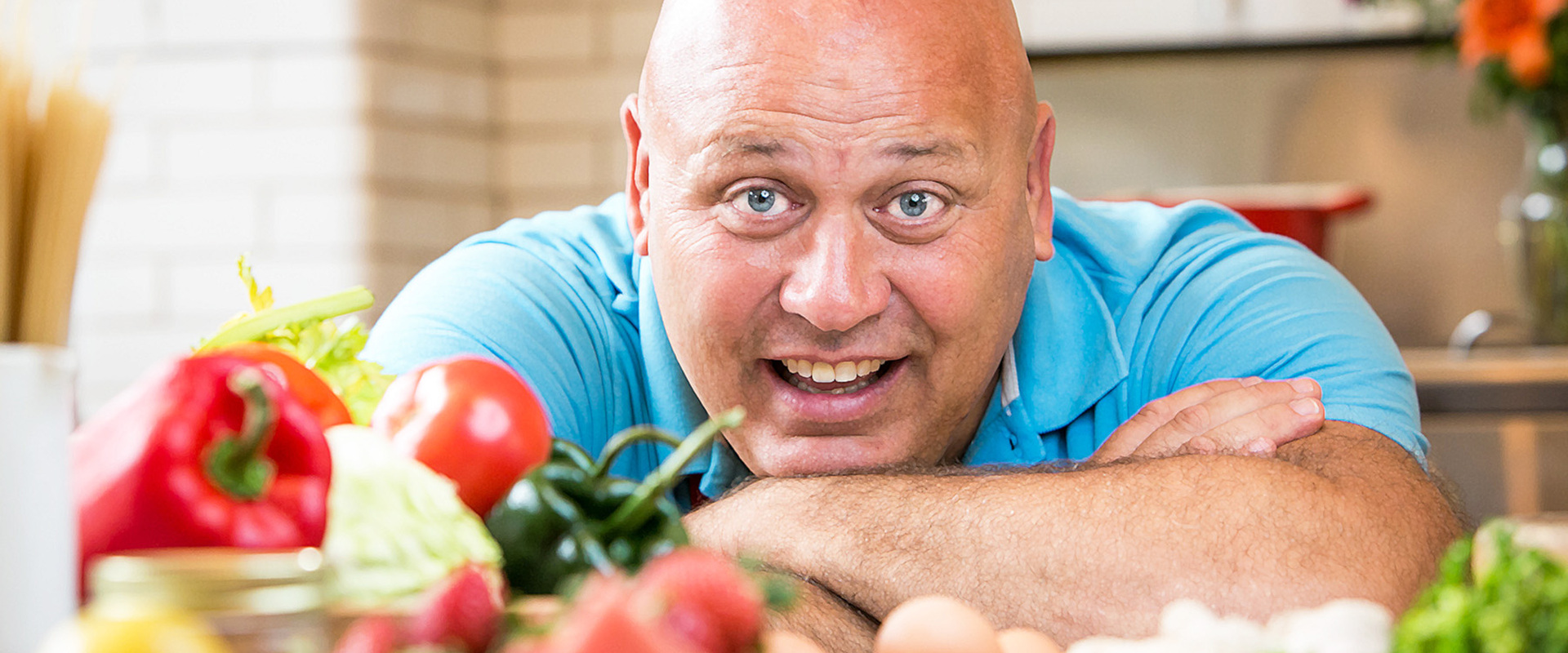Chef Gino: a role model for American children
2017-10-30
Many successful chefs have a secret ingredient.
Chef Gino’s is a really great one: l’
fun. Fun, excitement, and a little chaos. It’s always around: when he’s mixing eggs and flour to make pastry, putting a pan on the stove to cook a sauce, or spinning pizza dough around his head.
All this explains why Chef Gino, real name
Gino Campagna, has won over so many American children. Having moved to
Los Angeles, California, almost thirty years ago, he worked for a while with his brother, a graphic designer, before he began teaching children how to cook Italian.
His method includes dancing, singing, acting, telling stories, doing magic tricks and, of course, getting his hands covered in dough. The result is so inspiring and educational that the
Disney Channel snapped him up as a presenter. Today,
Chef Gino is a role model for kids all across the States.
Gino’s on a real
mission: he appears on TV shows (including one where he teaches children with Down syndrome how to cook), performs in TV adverts, makes guest appearances at private parties and celebrity events in Hollywood, writes a column for the Huffington Post, acts as marketing consultant for Italian brands like Ferrero and Barilla. He’s also the co-founder of the non-profit making
“Piccolo Chef Foundation”, with the
Italian cultural Institute of Los Angeles, and is one of a team of chefs involved in the “Food Revolution” project set up by UK chef Jamie Olivier.
How and when did you become involved in cooking, Chef Gino?
“
I’m from the Oltretorrente district of Parma, and the kitchen has played a central role in my life ever since I was born. I’d help my mum Pinuccia shape gnocchi with my thumb, or use a mezzaluna to chop up parsley. When I grew up and started to travel, I earned a reputation for being “Italian”, that is, a chef and a foodie. I’ve always cooked, but when I arrived in California in the early 1990s, I realised that American kids didn’t know anything about cooking or using ingredients, and that’s when I decided to focus on a career teaching children about food.”
What’s the most satisfying part of teaching young ones about cooking?
“
I’ve always worked with children, first as a children’s entertainer in Italy and later a cookery instructor here in the US. The most satisfying part of working with children is when you realise you’ve made some kind of difference to their lives, influencing their habits and behavior for the better.”
What’s been the greatest difficulty?
“
The difficulty here in the US isn’t with the children, but with their parents. The average American hasn’t cooked for generations. It’s almost a forgotten art, and it’s hard convincing the parents, not the children, to get back in the kitchen…” (to be continued).
Mariagrazia Villa
